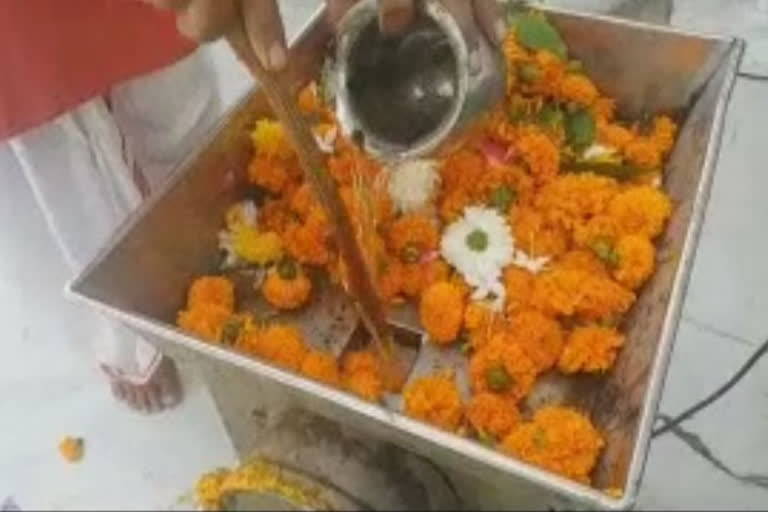Ghaziabad: The floral offerings at the Shipra Sun City Shiv Temple float in the muddy waters of the pond or nearby lake and choke the water bodies. Offered with immense faith by the devotees, these beautiful flowers, which form an integral part of Hindu prayers, are cursed to slow decay. If not thrown in a lake, the devotees leave them as offerings outside the temple and later on, they are thrown into trash cans and taken to dumping grounds. Disposal of flowers in the dumping grounds and lakes pose a great threat to the environment, pollute the rivers and causes irreversible damage.
In an attempt to dispose of the waste in an eco-friendly manner, the Uttar Pradesh temple authorities has set up a biogas plant in which decayed flowers are used to produce biogas and fertilizers. With the help of the biogas, prasad is also prepared and fertilizers are used in the temple garden. The innovative method of bio conservation coined by the committee of Shipra Sun City Shiv temple in Indirapuram has received wide appreciation. Indirapuram is an urban suburb under Ghaziabad district of Uttar Pradesh.
"We receive a lot of flowers every day and all of them used to go the trash cans and get added to the waste piles in landfills. We thought of doing something in which flower waste could be used to help the environment and hence we decided to produce biogas," said Vinay Mishra, the temple priest.
The cost of installing a biogas plant was around Rs 2.50 lakh rupees which was borne by the temple committee.
READ: Attempt being made to discredit Mumbai film industry, says Shiv Sena
